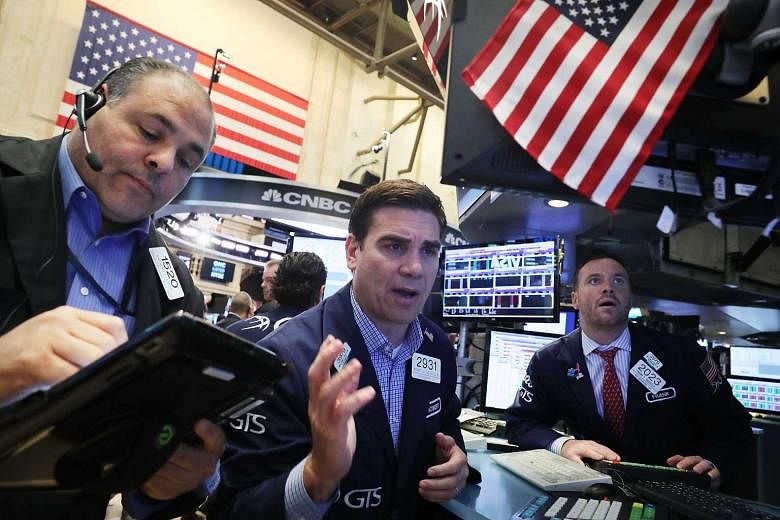NEW YORK • One way to assess how much pain looms for global stocks post-Brexit is to figure out who needs to sell. Strategists analysing fund flows say that includes computer traders, exchange-traded funds and individuals who piled into European stocks expecting a different outcome.
Britain's departure from the European Union will unleash as much as US$300 billion (S$406 billion) of selling by automated quantitative analysis programs in the already-battered US stock market, according to Mr Marko Kolanovic, the JPMorgan Chase & Co derivatives strategist.
His colleague Nikolaos Panigirtzoglou looked at ETF and government data and concluded that US investors own a lot more European stock than they did during the sovereign debt crisis four years ago.
Equity investors in the United States would be wise to stay away until quantitative analysis (quant) managers finish the work that was forced on them by last Friday's volatility, Mr Kolanovic wrote. About US$2.6 trillion was erased from global share markets and the Chicago Board Options Exchange's volatility index shot up 49 per cent last Friday as investors worried Brexit would snarl commerce and snuff out the economic recovery.
"The volatility that we're seeing now is winding and unwinding of positions that were set up in expectation of a 'Remain' vote," said Mr Walter Hellwig, who helps manage US$17 billion as senior vice-president at BB&T Wealth Management in Birmingham, Alabama. "Volatility has been introduced here because of the unexpected results. It caught the market by surprise."
The S&P 500 Index dropped 3.6 per cent on Friday, capping a five-day decline of 1.6 per cent, as more than 15 billion shares traded across US exchanges, double the daily average so far this year.
MSCI's global stock index plunged 4.8 per cent in the biggest slide since August 2011, while European stocks slid 7 per cent in the worst day since 2008.
Leveraged ETFs tied to the S&P 500 created additional downward momentum in US equities last Friday, as fund owners sold more shares as part of their daily rebalancing, according to Mr Panigirtzoglou. The mechanical process that amplifies returns caused more than US$4 billion in forced selling last Friday, the most since August, he wrote.
Mr Kolanovic is one of several Wall Street quant gurus predicting elevated selling in the wake of the British decision, after UBS Group's Rebecca Cheong predicted on Friday as much as US$150 billion in automated sales. Both are derivatives analysts who generally try to predict how automated funds will react to volatility and other market inputs.
One of their assumptions is that as levels of turbulence fluctuate in US equities, it triggers robotic decisions in programs that buy and sell stocks to keep portfolio volatility around preset targets.
Quant trading accounted for US$25 billion of selling last Friday, the result of investors hedging short positions, according to the note. While that would normally be about 10 per cent of the total value of stocks traded in any given day in the US, last Friday it was less than 5 per cent.
An additional US$100 billion in automated sales will hit over the next few days, with US$40 billion coming from volatility targeting, US$40 billion from trend-following strategies and as much as US$30 billion from risk parity funds, which try to balance exposure across asset classes, according to Mr Kolanovic.
The sales could end up totalling closer to US$300 billion, depending on how realised volatility responds to recent stock market shocks, he noted.
While equity turbulence is unlikely to turn into a long- term ordeal, investors will need to be prepared for the worst. "As the selling eventually abates in a few weeks, investors will need to reassess the probability of a US recession," Mr Kolanovic wrote.
"In the absence of decisive monetary or fiscal measures, we see the probability of a recession increase significantly."
BLOOMBERG

